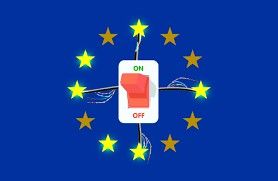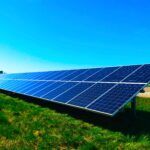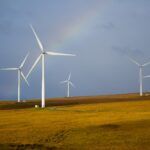 Renewables overtake fossil fuels as the EU’s main power source
Renewables overtake fossil fuels as the EU’s main power source
Last Tuesday, October 26, the European Commission adopted the State of the Energy Union 2021 report in which, almost two years after the launch of the European Green Pact, it takes stock of the EU’s progress in the clean energy transition. While some trends are encouraging, further efforts will be needed to reach the target of reducing net emissions by at least 55% by 2030 and to achieve climate neutrality by 2050, and data will need to be carefully analyzed next year to identify longer-term trends post COVID-19. The report provides a comparative study on the progress made within the European Union related to the ecological transition and the European Green Pact. The report is mainly based on the analysis of the five pillars of the Energy Union: decarbonization through the Emissions Trading System and renewable energies, improving energy security and safety, increasing energy efficiency, strengthening the internal market, and innovation, research and competitiveness.
The report shows that renewables overtook fossil fuels as the number one power source in the EU for the first time in 2020, generating 38% of electricity, compared to 37% for fossil fuels. To date, 9 EU Member States have already phased out coal, 13 others have committed to a phase-out date, and 4 are considering possible timelines. Compared to 2019, EU27 greenhouse gas emissions in 2020 fell by almost 10%, an unprecedented drop in emissions due to the COVID-19 pandemic, which brought overall emission reductions to 31%, compared to 1990.
The EEA’s preliminary estimates indicate that the EU achieved a 21.3 % share of renewables in its energy consumption in 2020. According to the EEA analysis, the overall positive progress is mainly due to the increased use of renewables for electricity, heating, and cooling. The use of renewables in transport is increasing more slowly but preliminary data indicates that the EU narrowly achieved the 10 % target of renewable energy use in the sector.
Achieving a 20 % reduction in energy consumption seemed unlikely for many years, but the widespread lockdowns in 2020, due to COVID-19, appear to have pushed EU’s primary and final energy consumption below target levels, by 5 % and 3 % margins, respectively. Sustaining further reductions in energy consumption will be needed to keep on track towards long-term goals.
Energy poverty affects up to 31 million people in the EU according to the latest data, and this issue will remain in sharp focus in light of the economic challenges of COVID-19, and the current price situation. It is why the Commission has put a strong focus on shielding vulnerable consumers in its recent Energy Prices Communication.
The State of the Energy Union Report analyses how energy and climate policies have been impacted by the COVID-19 pandemic in the past year, and it presents the substantial legislative progress in pursuing the EU’s decarbonisation efforts. It also notes the political efforts to ensure that our post-COVID recovery programmes embrace our climate and energy objectives more than ever.
Background
The State of the Energy Union Report analyses the five pillars of the Energy Union: accelerating decarbonisation with the EU Emission Trading System (ETS) and renewables at is core; scaling up energy efficiency; enhancing energy security and safety; strengthening the internal market; research, innovation and competitiveness. It also identifies areas of future priority action in delivering the European Green Deal. Five inter-related reports accompany the main report.
- Annex on Energy subsidies in the EU: Fossil fuel subsidies fell in 2020, principally owing to decreasing energy demand amid the Covid-19 pandemic, however, additional efforts need to be made in order to ensure that fossil subsides are to decrease in the future in the EU, avoiding a rebound in subsidies amid general economic recovery and increasing energy demand.
- Progress on competitiveness of clean energy technologies assesses the clean energy ecosystem, from research and innovation to deployment. It assesses progress based on key competitiveness indicators. The report shows that while the EU remains at the forefront of clean energy research, further efforts are needed to increase R&I investments and to bridge the gap between innovation and market
- The Climate Action Progress Report: “Speeding up European climate action towards a green, fair and prosperous future” describes progress made by the EU and its Member States in attaining their greenhouse gas emission reduction targets, and reports recent developments in EU climate policy. The report is based on data submitted by Member States under EU Regulation on the Governance of the Energy Union and Climate Action.
- The Carbon Market Report describes developments in the functioning of the European carbon market, including on the implementation of auctions, free allocation, verified emissions, balancing supply and demand, market oversight and EU ETS infrastructure and compliance.
- The Fuel Quality Report provides information on the progress made with regard to the greenhouse gas intensity reduction of road transport fuels and the quality and composition of fuels supplied in the EU. The report summarises the situation reported by Member States under Articles 7a and 8(3) of the Fuel Quality Directive.







Leave a Reply